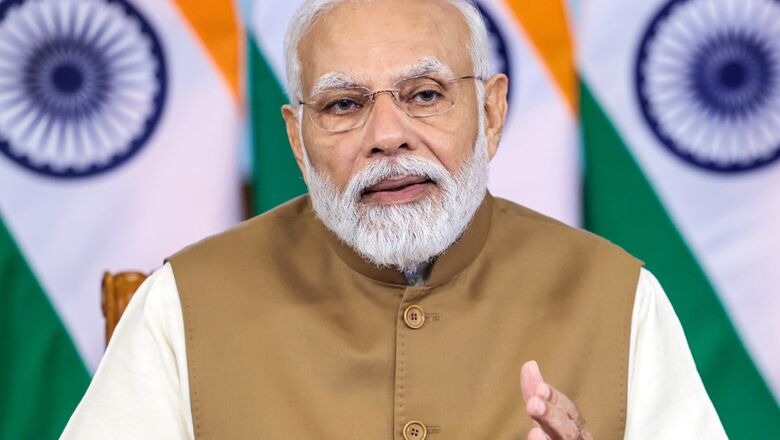
views
Minhaz Merchant stands out for his journalistic neutrality. It is indispensable for him in journalism “to not only be politically neutral” but also “seen to be politically neutral”. So much so that he makes it a point not to follow any politician on a social networking site. Even when Prime Minister Narendra Modi followed him on ‘X’, he refused to return the compliment.
One may not agree with the premise of his argument, for following a politician, more so a Prime Minister, doesn’t mean any compromise in one’s journalistic neutrality. In today’s world, following politicians or celebrities means you don’t miss out on any of their statements, observations—a prerequisite for basic journalism. Still, Merchant’s stand is laudatory, especially at a time when one is tempted to crawl when asked to bend by those in power.
It is this nature of Minhaz Merchant to vigorously pursue journalistic neutrality, besides his long, illustrious innings in the media sphere, that makes his latest work, Modi: The Challenge of 2024 (Amaryllis, Rs 899), a must-read book. It needs to be clarified at the very outset that this is not a biography of Modi. The book, instead, covers his two terms as prime minister and explains why 2024 is going to be a watershed year. He calls it “the year of reckoning” that would witness the “battle for India”.
The book starts with the author meeting Modi “for the first time in 2012”, when the latter was the chief minister of Gujarat. What struck Merchant then were Modi’s eyes. “They (eyes) bore into you. The gaze is unflinching.” A year later, Merchant found himself in Gandhinagar. Modi was “in high spirits”. He had just won a landslide third term as Gujarat chief minister. In that meeting, Modi asked Merchant if he would be willing to write a biography on him, given “so much misinformation” about his life, “especially over the Godhra riots”. Merchant politely refused, saying: “One prime ministerial book is enough.”
Merchant had already written a biography of former prime minister Rajiv Gandhi. Interestingly, the author, after declining the offer, suggested the name of British author Andy Marino for the job. “I then suggested that if he (Modi) wanted a neutral and completely objective examination of his life and work, perhaps a foreign author could be invited to write the book. Modi liked the idea.”
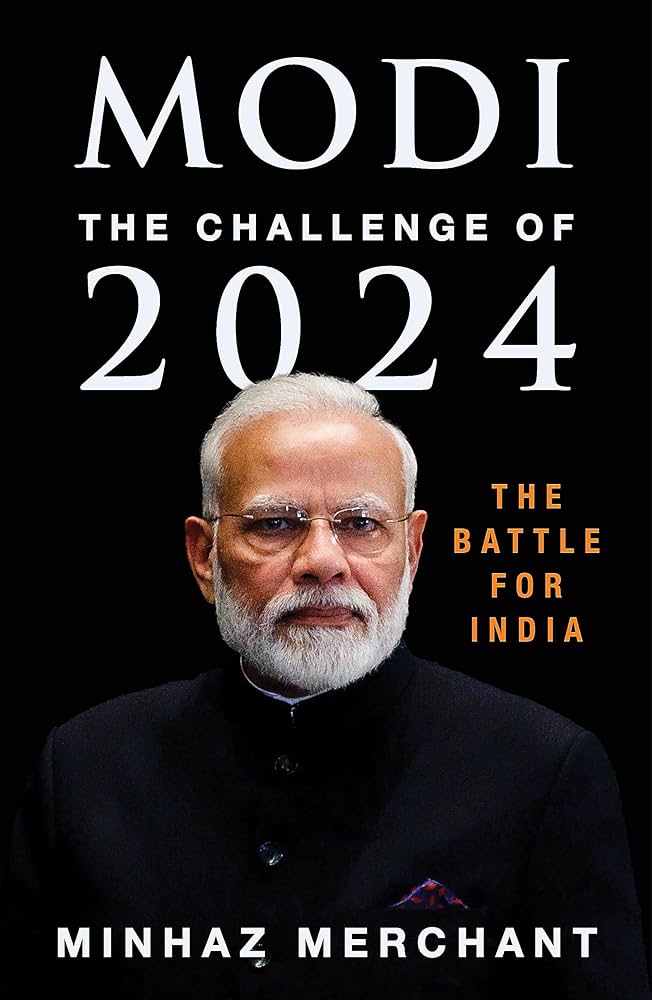
Coming to Modi: The Challenge of 2024, it does an objective analysis of the major achievements of the Modi government—from helping India take a big digital stride forward, to putting the country on the high lane of infrastructure development. Unlike the Left-‘liberal’ commentators, he doesn’t shy away from talking about the good works done by the Modi dispensation. And, he is equally upfront about the failures and weaknesses of the Union government.
He, for instance, is wary of the growing trend in the BJP towards Prime Minister Modi’s deification, reminding the readers of the delusional Indira-is-India narrative of the 1970s. He is equally concerned about the growing “yes-man” culture in the current dispensation, though he reiterates that Modi detests sycophancy and appreciates honest feedback. Merchant is also unhappy over the fact that the “government’s tentacles have… grown, not receded” on matters of economy. He writes, “The prime minister won his mandate on the promise of minimum government, maximum governance. The opposite has been the case.”
Still there is no decline in the personal popularity of Prime Minister Modi. Merchant believes this has to do with Modi’s understanding of the Indian mind. “His teenage wandering in the Himalayas, eating and living with monks, sadhus and ordinary villages, gave him rare insights. During a varied career in the RSS—from doing menial jobs to fixing organisational issues—Modi learnt much about human nature.”
This innate understanding of the Indian mind gives Modi an edge over other politicians. Add to it the prime minister’s personal probity and he becomes an almost invincible force in Indian politics. Modi believes that the people are willing to forget and forgive mistakes if the government’s intent is right. It is Modi’s success in conveying the earnestness of each of his initiatives that makes him and his government anti-incumbency-proof. Demonetisation is a case in study. People suffered. They were not sure if it was carried out competently and if it could achieve its desired results. But people on the whole never doubted Modi’s intentions. Demonetisation didn’t hurt Modi a bit, electorally or otherwise.
So, is 2024 a done deal for the BJP? While reading the book one gets the sense that the party is comfortably placed in the race, and can easily secure 300 Lok Sabha seats if things remain the way it is today, but it would be suicidal to think it’s a done deal for the saffron party. All depends, Merchant writes, on how smartly Opposition parties stitch their alliances across the country. Also, the BJP should be wary of complacency creeping in among its leaders and cadres after two consecutive Lok Sabha wins.
Merchant believes that the 2024 elections would be a make or break election for not just the BJP and the Congress but also the county. It, after all, “could determine the course of Indian politics for the next decade”. He adds, “With India set to be the world’s third largest economy by 2026-27 behind the United States and China, 2024 could be a historic turning point.” More so given the fact that China’s hegemonistic challenge and the US-led West’s good cop-bad cop attitude vis-à-vis India would only get intense in coming years.
Interestingly, the author doesn’t stop at 2024 and makes a forecast for 2029. He believes Modi will “step aside in 2029 after 15 years as prime minister”. Merchant’s assessment seems rather convincing. Politicians in India tend to cling on to power as long as they can. But Modi is made of different stuff. He writes, “…Modi had wandered in the Himalayas for two years after walking out of his Vadnagar home in Gujarat at the age of 17. Modi lived in caves and ate with monks. He told me during our several meetings that he did not have a meal at the same place more than once. Modi lived like a rishi.”
Merchant adds a rider, though. “Modi would have to first win the 2024 Lok Sabha election before even thinking of 2029. Modi is not given to long-term projections. He lives in the present.”
The author also delves into the post-Modi phase in the chapter ‘Modi: The New Vajpayee?’. While recalling how in the 1990s and the early 2000s, the ‘liberal’ Vajpayee was projected against ‘hardliner’ Advani, Merchant exposes the same farce being played up in the media as the country approaches another general election early next year. “Ironically, the harshest critics of Prime Minister Narendra Modi who have vilified him since 2002 now look fearfully at Amit Shah and Yogi Adityanath… The prospect of Amit Shah or Adityanath as Prime Minister unnerves them so much that they are prepared to put up with Modi 3.0 as the new Vajpayee—internationalist, moderate, statesmanlike.” Interestingly, in a later chapter, Merchant further narrows down upon Modi’s successor as he writes on how Yogi, “a hard taskmaster”, is feared the most by “the Congress-Left opposition”.
Minhaz Merchant’s Modi: The Challenge of 2024 is one of the best and most dispassionate accounts of Narendra Modi and his two terms in New Delhi. What makes it worth a read is its sheer scrupulousness in etching out why 2024 is the year of reckoning for India, Indians, and Indian politics—and, of course, the way forward.












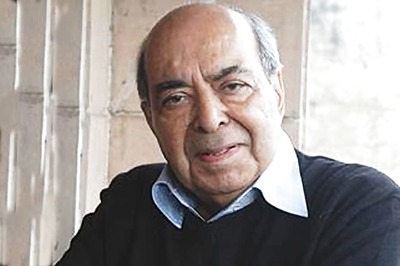
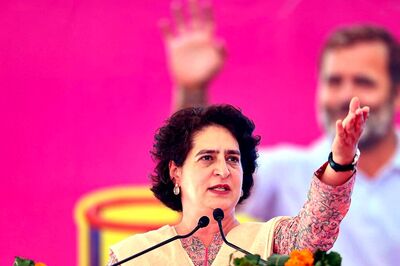


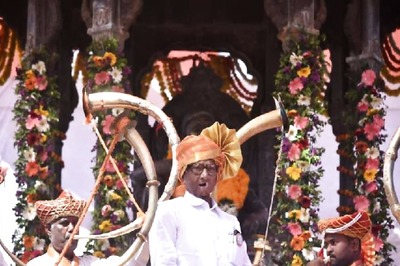

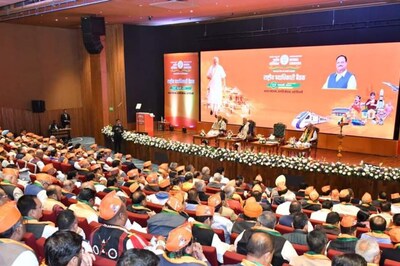

Comments
0 comment